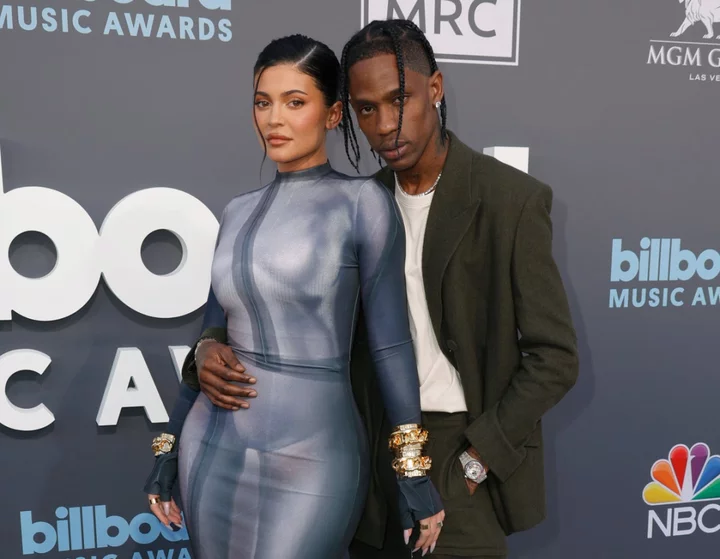
Kylie Jenner says she and ex Travis Scott are doing ‘the best job that they can do’ as co-parents
Kylie Jenner has shared a rare comment about co-parenting with her ex, Travis Scott. The 26-year-old model spoke candidly about her and Scott’s children – Stormi, five, and Aire, one – during an interview with The Wall Street Journal Magazine, published on 24 October. When asked about co-parenting with the rapper, she said: “It’s going…. I think we’re doing the best job that we can do.” Scott and Jenner first started dating in 2017 and had an off-and-on relationship until January 2023. At the time, a source claimed to Us Weekly that the pair were “off again,” after rekindling their romance for a second time in February 2020. However, the publication also claimed that the former couple was still on good terms, adding: “This has happened so many times before, they’re known to be on-again, off-again, but always remain friends and great co-parents.” Since their split, Scott has shown his support for his ex. In April, he took to the comments of one of her Instagram posts and wrote: “A beauty.” However, fans came up with a different theory in July, with claims that a reference in his song, MELTDOWN”, was about Jenner’s new relationship with Timothée Chalamet, who she’s been romantically linked to since May 2023. At the end of the song’s second verse, Scott raps the lines: “Chocolate AP and chocolate the Vs got the/ Willy Wonka factory (Vs)/ Burn a athlete like it’s calories find another flame/ hot as me, b****.” The mention of Willy Wonka is seemingly in reference to Chalamet’s leading role as Roald Dahl’s famous fictional chocolatier in the forthcoming musical feature film, Wonka. During her interview with WSJ Magazine, the reality star also spoke candidly about motherhood, and how her perspective on beauty standards has changed while raising Stormi. She also described some of the lessons she’s teaching her daughter. “My daughter has totally taught me a lot more about myself, and seeing myself in her has changed everything. I’ve had so much growth and am just embracing natural beauty,” she said. “I’m teaching her about mistakes that I made and making sure she knows she’s just perfect exactly how she is.” The Kardashians star specified that some mistakes she’s made over the years have included getting “surgery when [she] was younger”. She added that while she’s never gotten work done on her face, she still decided to have a breast augmentation, which she’s previously been open about. “But just even getting my breasts done when I was 19 and getting pregnant soon after, not obviously planning to be pregnant at 19,” she said. “And I was never insecure about myself. I actually was always super confident and loved my body. I was just having fun. I was influenced by amazing boobs and was like, that’s what I wanted to do, and had fun with it.” According to the Kylie Beauty founder, her experiences can be lessons for her children. “I probably just should have waited until I maybe had kids or let my body just develop,” she said about the procedure, before adding that motherhood is about “teaching our kids to do better than us, be better versions of who we were”. During the interview, she also spoke about legally changing her son’s name from Wolf Jacques to Aire in 2023, one year after he was born. “That was the hardest thing that I’ve ever done in my life,” she said. “I’m still like: ‘Did I make the right decision?’” She also explained how difficult it was for her to come up with her son’s name shortly after giving birth. “The postpartum hit, and the hormones, and I couldn’t even make a decision or think straight,” she added. “And it just destroyed me. I could not name him. And I was like: ‘I feel like a failure. I don’t have a name for my son.’ So it took me a while. And then the longer I waited, the harder it was to name him.” Read More Timothée Chalamet compares Kylie Jenner romance to Harry-Meghan South Park episode Gym maths: How to optimise 22 minutes exercise a day according to fitness experts Chris Pratt sparks relatable parenting debate about childhood trophies Gym maths: How to optimise 22 minutes exercise a day according to fitness experts Chris Pratt sparks relatable parenting debate about childhood trophies Jasmine Harman tearfully recalls mother’s struggles with hoarding
2023-10-26 04:47

Chris Pratt sparks debate over when parents should throw away childhood trophies
Chris Pratt has asked the question almost every parent wonders when raising their children: Is it okay to throw away childhood trophies? The Guardians of the Galaxy star, 44, recently posed the question to his social media followers after he and his wife, Katherine Schwarzenegger, came across all her childhood trophies kept by her parents, Arnold Schwarzenegger and Maria Shriver. Pratt took to Instagram on 24 October, where he shared several photos of the children’s book author, 33, holding up some of her many childhood trophies - including “Problem Solving Super Star 4th Grade 2000” and “most improved two-year-old in swim class”. In the lengthy caption, the Parks and Recreation alum explained that Schwarzenegger’s mother had been “storing special items” from her daughter’s childhood for years, which he noted was “so very thoughtful”. “To see my darling wife beaming with sentiment as she opens these crates of meticulously organised keepsakes, remembering her cherished youth, makes me grateful for the efforts her folks put into archiving,” Pratt wrote. “I suppose that’s the payoff for the work it took to store this stuff, the smile on her face as she relives moments of her youth. To pray one day that your children will look back on their childhood with glee is a blessing. It is the hope of parenthood.” However, as the couple - who have been married since 2019 - perused Schwarzenegger’s prized possessions, it got him thinking about how long he’s supposed to hold onto his own children’s mementos. Pratt shares an 11-year-old son, Jack, with ex-wife Anna Faris and two daughters - Lyla, three, and Eloise, one - with Schwarzenegger. “Real talk,” Pratt said. “Once your kid goes through the stuff, is it okay to toss? I mean… do we need the ‘I was on a sports team trophy?’ Can they be donated? Repurposed? How many do we gotta keep? Not all of them right? Any of them? Is there a grading scale? Like, did you win? Were you a champion? Is there a specific sentimental connection? Help me out here. Do they go back in storage?” His relatable question prompted many parents in the comments section to sound off on how long they’ve kept their children’s trophies. Some users admitted that they wished their own parents had held onto their accolades for so long. “Wait this is amazing. I’ll be saving my children’s stuff for sure,” one person commented. “Well, I have no keepsakes from childhood and I wish I did. So there is that,” another said. “I had my boys go through their boxes and they kept what was special to them. I tossed the rest,” a third fan wrote. “FREEDOM!!!” Others revealed what they did to cherish their children’s precious memories while still saving some room in the storage bin. “I donated all my old trophies to an organisation that removes the labels and repurposes them for fun awards,” wrote one fan. “For those sentimental ones, we peeled off the engraved part and kept it in a plastic pocket notebook and tossed the trophy part,” said someone else. Another user suggested: “Give them out as prizes when your friends come over for game night.” Meanwhile, Schwarzenegger joked that her husband was simply jealous she’s acquired so many trophies over the years. “Feels like someone is a litttlllee bit jealous of my natural athleticism from birth and ability to solve problems,” she commented. Pratt’s mother-in-law also weighed in on the debate, as she applauded herself for saving almost every prized possession for her four children. “Omg I’m so happy,” Shriver commented. “Here’s to story trophies and school work and dresses and party outfits I feel vindicated.” The Jurassic World star was married to Faris in 2009. The former couple announced their split in August 2017 and finalised their divorce in October 2018, four months after he began dating Schwarzenegger. He proposed to the author in January 2019 and they were married in June that year. Pratt has often shared glimpses into his life as a father of three on social media. Most recently, he went viral when he posted a photo of the glittery makeover he received from his two daughters. He shared two photos of his new look, including one where his forehead was bedazzled with teal, purple, and silver gems. The other photo showed Pratt with pearl-like gems dotting his face, as well as a teal manicure. “All I have to say is… Jack would never do this to me,” he captioned the post. Read More Gym maths: How to optimise 22 minutes exercise a day according to fitness experts Jasmine Harman tearfully recalls mother’s struggles with hoarding Neglecting women’s health at work could cost UK economy £20.2bn a year – analysis Gym maths: How to optimise 22 minutes exercise a day according to fitness experts Jasmine Harman tearfully recalls mother’s struggles with hoarding Neglecting women’s health at work could cost UK economy £20.2bn a year – analysis
2023-10-25 22:57
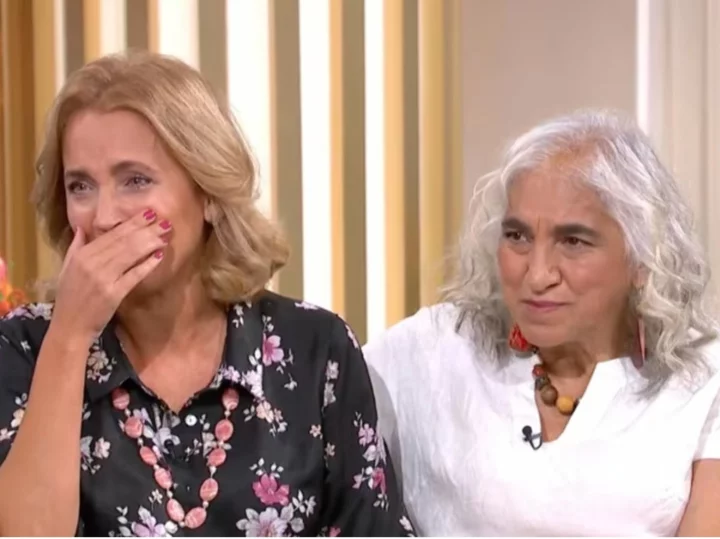
Jasmine Harman tearfully recalls mother’s struggles with hoarding
TV presenter Jasmine Harman became emotional as she opened up about her mother’s struggles with hoarding – and how it adversely impacted their relationship for years. The host of Channel 4’s A Place in the Sun, Harman, 47, said she “refused to bring people home” and was “really, really embarrassed and ashamed” about her mum Vasoulla’s condition, on Wednesday (25 October) during an appearance on This Morning. “In fact, when I started working in television, it was my biggest fear that someone would find out about the way I’d grown up and the way that we lived at the time,” she told Dermot O’Leary and Allison Hammond. Reflecting on how things had changed since then, Harman teared up as she affirmed her priority is “having a loving relationship” with Vasoulla – and not “focussing on the hoarding” anymore. Addressing her mother, Harman added: “She’s helped me to become a much more compassionate person. We used to fight, didn’t we? “But now we have a relationship that’s outside [of the hoarding].” Hoarding was recognised as a mental health disorder in 2013. According to the World Health Organisation (WHO), it is characterised by “an accumulation of possessions due to excessive acquisition of, or difficulty discarding possessions, regardless of their actual value”. The Diagnostic and Statistical Manual of Mental Disorders (DSM) outlines detailed criteria that psychologists can use to diagnose hoarding, including cluttered living spaces where the room’s intended use [of cooking, sleeping, or sleeping] has become impossible. These behaviours usually appear during a person’s early life, with Vasoulla explaining it was triggered by “the trauma of loss” in her case. “We moved from Cyprus when I was about three so I left my baby things back home and started collecting trinkets in bombed-out houses that were still about in the early Sixties, after the war – trinkets that I treasured,” she explained. “Then we moved back to Cyprus for a couple of years and those things all got lost. Then we moved back to England and all my new ties got lost – so I just had lots of upheaval, lots of loss.” Vasoulla, whose father was killed in Cyprus, added: “It’s more the loss, like a bereavement. Losing your father is a big thing, moving country ...you lose everything and you get a new place to live. The trauma of loss [is] something that a lot of people have as the onset of their hoarding behaviour.” The mother-daughter duo previously opened up about how hoarding affected their lives in a 2011 BBC documentary, titled My Hoarder Mum & Me. Speaking about the “cathartic experience”, Harman on Wednesday confessed:“I genuinely had no idea how many people were affected by this.” Around three million people are reportedly impacted by the mental health condition, according to Hoarding Disorders UK. The organisation’s director Jo Cook, who joined Vasoulla and Harman on the This Morning couch, explained that hoarding is neither a lifestyle choice, nor “about poor housekeeping”. When asked about supporting loved ones who might struggle with hoarding, Cook recommended joining a support group and approaching the anxiety-based disorder with empathy. “It’s really important that that person that you’re helping, feels safe in their home with you. Because, essentially, you’re unpicking someone’s nest, so you need to make sure you’re doing it slowly and surely,” she added. If you have been affected by this article, you can contact the following organisations for support: actiononaddiction.org.uk, mind.org.uk, nhs.uk/livewell/mentalhealth, mentalhealth.org.uk. Read More Pete Davidson is on the market for a hot date - but not for him Gym math: How to optimise 22 minutes exercise a day according to fitness experts Neglecting women’s health at work could cost UK economy £20.2bn a year – analysis Gym math: How to optimise 22 minutes exercise a day according to fitness experts Neglecting women’s health at work could cost UK economy £20.2bn a year – analysis Nearly three-quarters of mothers feel invisible, study suggests
2023-10-25 21:46

Neglecting women’s health at work could cost UK economy £20.2bn a year – analysis
Neglecting women’s health in the workplace could be costing the UK economy around £20.2 billion each year, analysis has suggested. In a new survey of 2,000 women, 68% said that they have dealt with health issues at some point in their career, whilst almost 29% felt their employers were not supportive. When factoring in specific health matters that relate to women, including endometriosis, fertility, menopause and periods, this figure increases to 36%, leaving 46% of women worried that their health could impact their career trajectory and 48% thinking they would be forced to resign. The study conducted by AXA Health in partnership with the Centre of Economics and Business Research (CEBR) also suggested that 83% of women have had their personal finances affected when faced with health issues. For instance, 52% of women have had to take time off, 22% missed out on a promotion and 20% settled for lower pay. Economic modelling from AXA Health and CEBR suggested that ignoring women’s health at work could be costing the UK economy £20.2 billion a year. From 90% of women struggling emotionally, 46% feeling helpless and 43% feeling less motivated at work, this issue has also had a huge impact on their mental health and wellbeing. “As this report finds, neglecting the health of women in our workplaces isn’t just a matter of compassion; it’s a serious economic oversight,” said Flick Drummond MP, who is serving as the co-chair of the All-Party Parliamentary Group on Women and Work. Dr Pallavi Bradshaw, deputy chief medical officer at AXA Health, added: “While companies certainly still have a way to go in addressing women’s health at work, there is promise in the increased willingness of women to discuss their health concerns with colleagues and managers.. “For example, our women’s health report found that 60% of women who talked about their health found their employers to be supportive, whether this be through time off, offering counselling or making adaptations to the workplace. “These developments are positive, but as we delve further into the findings, it becomes evident that concerns extend beyond just health issues. A striking 53% of the women we surveyed voiced that, within their workplaces, women often shoulder more unplanned responsibilities – such as caring for loved ones – than their male counterparts. “Furthermore, when reflecting on their own families, 39% of respondents revealed that they bear a greater burden than male family members when it came to unexpected caring responsibilities. This gender-based imbalance in unpaid labour not only perpetuates inequality but also places women at risk of being sidelined in their careers, overlooked for promotions, or compelled to work beneath their true potential.” Bradshaw said the economic impact of neglecting women’s health is “still significant”, and urged the need for “more education, robust workplace policies and talent retention initiatives”. The report suggested women who work part-time are hit even harder when it comes to health-related issues. It found that 61% are worried about having to leave their jobs prematurely, which exceeds the average by 19%. Only 17% of women who work full-time believe that conversations surrounding women’s health are not encouraged in their workplaces, but this increases to 23% for those who are employed part-time. According to a report conducted by The Royal College of Obstetricians and Gynaecologists, women represent 51% of the population and 47% of the workforce. Read More Nearly three-quarters of mothers feel invisible, study suggests The best ways to work-out in 22 minutes – as study finds this is magic number for offsetting ‘negative impact of sitting’ What crops will we be growing in the future, as climate change alters the landscape? As Rebecca Adlington shares heart-breaking miscarriage news: How to support others experiencing baby loss What you need to know about new research into treating cervical cancer How to do Halloween make up and still take care of your skin
2023-10-25 19:49
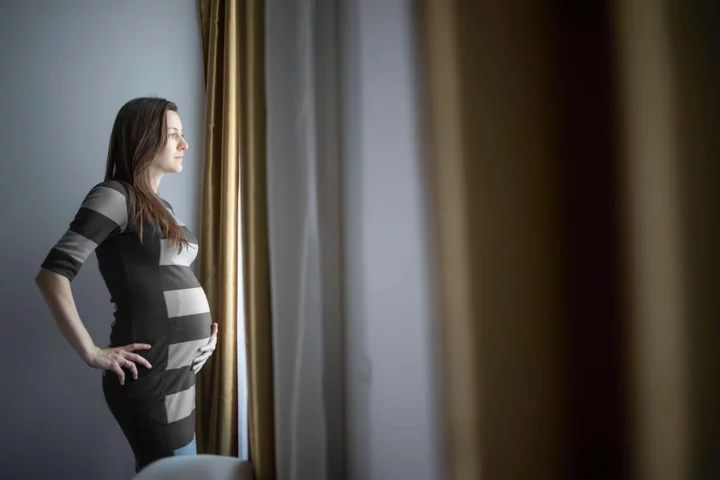
Nearly three-quarters of mothers feel invisible, study suggests
Most women feel ‘invisible’ and ‘unappreciated’ when they become mothers, new research has revealed. Instead of ‘having it all’, 72% of mums feel invisible and 93% feel unappreciated, unacknowledged or unseen once they’ve had children. Another 93% said that since having a child, their identity has been reduced to only being a mother. And the weight of expectation is huge, too, with 97% of mums questioned in the survey by the online motherhood community Peanut saying pressure is put on them to ‘do it all and be it all’. Plus, 94% believe they’re expected to put themselves last and self-sacrifice for their families, partners, jobs, and other responsibilities, so they can achieve what they feel is required of them. Nearly half of mums (46%) said they don’t feel supported by the healthcare system after giving birth, and 70% expected more support from society in general. As a result of this lack of support and invisibility, most women surveyed (95%) agreed there’s an impact on their mental health and wellbeing, with 86% having experienced anxiety, 82% feeling stressed, burned out or exhausted, and 80% feeling overwhelmed, or lonely and isolated. Other strong feelings identified by mums included irritability (78%), loss of identity (65%), feeling judged (66%), feeling unsupported (64%), guilt (63%), depression (55%), resentment (54%), worthlessness (50%), and neglect (24%). Women attributed the things making them feel invisible to unfair division of labour in the home, trying to juggle a career and childcare, lack of empathy and understanding from both family and everyone else, gaps in healthcare and mental health support, identity and independence struggles, hiding the pain of pregnancy loss, and general pressure from healthcare, education institutions and the media. Commenting on the findings, psychologist Dr Rachel Goldman said: “The invisibility of motherhood is a stark reality many face. The journey begins with frequent visits to healthcare providers, but once the child arrives, there’s a sudden gap, creating a sense of abandonment. Women grapple with overwhelming feelings of exhaustion and stress, only to confront rushed appointments where healthcare professionals don’t have time to adequately dive into concerns.” As a result of the research, Peanut has launched an Invisible Mothers campaign, featuring a State of Invisibility report, to draw attention to mums’ struggles and highlight ways to make them more visible and better supported. The report found mums think more empathy and gender equality will help them feel more visible, with 82% calling for flexible, family-friendly workplaces, 77% wanting equal and extended leave for both parents, and 71% saying an equal share of parenting tasks would help. Additional measures that will help mums, says Peanut, include more public toilets having changing facilities, additional resources for mental health support, support groups for both parents, and educational initiatives about gender stereotypes. The report also identified the most common unwanted questions that contribute to mothers’ feelings of invisibility, with alternative suggestions that women say they would prefer to hear. So instead of asking ‘How’s the baby?’, Peanut suggests mums are asked ‘How are you really – mentally, emotionally and physically?’, and rather than ‘Was the pregnancy planned?’, try ‘Are you excited?’, and change ‘How do you do it all?’ to ‘How’s the mental load?’. Goldman added: “It doesn’t take grand gestures to offer support. A genuine ‘how are you’ or ‘thinking of you’ can significantly shift perceptions, signalling to someone that they matter. Small changes or actions, like compassionate conversations, can have profound impacts. “By acknowledging and addressing these issues, we can begin to truly support motherhood.” Read More The best ways to work-out in 22 minutes – as study finds this is magic number for offsetting ‘negative impact of sitting’ What crops will we be growing in the future, as climate change alters the landscape? As Rebecca Adlington shares heart-breaking miscarriage news: How to support others experiencing baby loss What you need to know about new research into treating cervical cancer How to do Halloween make up and still take care of your skin Which houseplants best suit your star sign?
2023-10-25 19:28
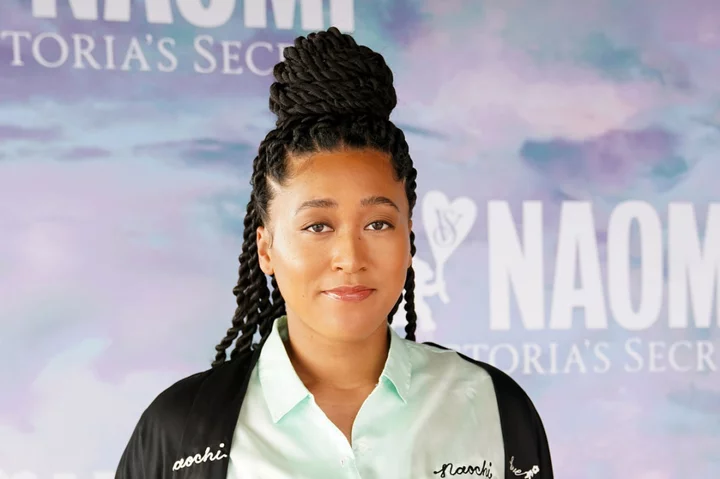
Naomi Osaka opens up about fighting thoughts that she ‘won’t be a good mom’
Naomi Osaka has reflected on battling self-doubt and difficult thoughts as a new mother. The four-time Grand Slam tennis champion gave birth to her first child, a daughter named Shai, in July 2023. She shares Shai with her partner, rapper Cordae. On Sunday (22 October), Osaka shared some insights into her personal life with her fans to mark turning 26 earlier in the week. In an extended post on X, formerly Twitter, the Japanese athlete wrote about taking stock of her life so far, and wondering whether or not she’s taken the “correct path”. “I often try to retrace my steps to figure out how did I end up here,” she explained. “I know I say this often but I truly still feel like that kid playing on public courts in Queens, NY. “Randomly I wonder if I’m doing OK, is there a correct path to take in life or have I veered off onto the scenic route for a little bit? However, I’ve now come into the mindset that I can only keep moving forward and everything that will be, will be.” Osaka then shared her specific feelings of worry about her capabilities as a parent. “Something I had to conquer recently is fighting the thought that I won’t be a good mom,” she wrote. “So many doubts raced through my head I had to swat them away like mosquitoes. “Looking into Shai’s eyes and holding her I always think, ‘Wow this little person depends on me so much, I have to do better.’ It’s such a strange feeling watching your kid grow, you blink and they’re double the size in a few months. “Gratefulness reminds me to breathe and take in the little things (and the big ones).” Osaka ended her post by expressing her gratitude for having “another year” and for the people who support her. Osaka’s last competitive match was at the Toray Pan Pacific Open in September 2022, before she withdrew from the tournament due to abdominal pain. She announced her pregnancy in January 2023 shortly after stating that she wouldn’t be competing in the Australian Open later that month. Last month, Osaka spoke about her year away from playing tennis and mentioned how other female tennis stars’ longevity has influenced her desire to keep competing. “The whole process, it felt long and short at the same time,” she told the American sports news channel ESPN. “When I stepped away, it was Tokyo, that was the last tournament I played. I just remember watching the Australian Open and being very devastated, because I’ve never missed an Australian Open. “When I was watching Serena and Venus [Williams], I was thinking, ‘Ah, I probably no way will ever play at their age’, but sitting here, I’m like, ‘You know what? I might do that actually.’” Read More ‘Truly heartbroken’ Rebecca Adlington reveals late miscarriage Should we stop putting the clocks back? What the experts think ‘I lost over a stone on Ozempic, but now it’s run out what am I to do?’ ‘Truly heartbroken’ Rebecca Adlington reveals late miscarriage Should we stop putting the clocks back? What the experts think ‘I lost over a stone on Ozempic, but now it’s run out what am I to do?’
2023-10-23 17:29
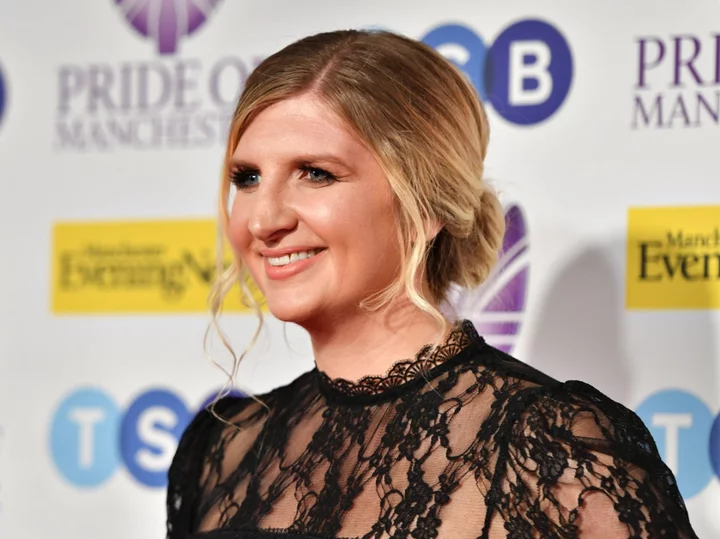
Rebecca Adlington says she’s ‘truly heartbroken’ after late miscarriage
Rebecca Adlington has said she’s “truly heartbroken” as the British swimmer announced she had a miscarriage at 20 weeks pregnant. Adlington, 34, said she went for her 20-week scan earlier this week and was informed her baby had no heartbeat, adding she and husband Andy Parsons, 31, “will forever love and remember” their daughter. She wrote on Instagram: “I don’t really have the words right now but unfortunately we went for our 20-week scan this week and they discovered no heart beat [sic].” Adlington added that she gave birth to the baby – who the couple named Harper – on Friday (20 October) and “we held her, and had time with her”. The two-time Olympic gold medallist thanked the staff at the Wythenshaw hospital in Manchester for their “incredible” kindness and care, and Parsons for his “selfless support, love, and help”. “I don’t have the strength or words right now and don’t feel ready to share this news,” Adlington continued. “However, I can’t pretend to be okay or fake a smile. I can’t have people ask me how pregnancy is or when I am due as I still look pregnant. I don’t have the strength to tell this news individually.” The former I’m a Celebrity contestant announced she was pregnant on 1 October, sharing a photograph of her family taken at Disneyland Paris. Former track athletes Dame Jessica Ennis-Hill and Greg Rutherford, ex-hockey player Sam Quek, former swim champion Adam Peaty, and presenters Angellica Bell and Helen Skelton shared messages of support in the comments section of Adlington’s Instagram post. Ennis-Hill wrote: “Oh Becky I’m sending you and your family so much love. I’m so sorry xxxx.” Rutherford said: “Sending love to you. So sorry to read this Becky xx.” Quek also wrote: “Becky, I know no words will ease the pain… my entire heart is with you all.” Peaty’s message read: “I’m so sorry to hear this, my prayers are with you all” alongside a heart and praying hand emoji. Adlington previously revealed she had a miscarriage 12 weeks into her pregnancy last August, sharing the news on Instagram at the time. The mother-of-two wrote: “It’s such a devastating time but important in times like these we remember we aren’t alone and have so much support. “Long way to go but I’m in the right place,” she added. “Once I’m able to leave hospital I’m extremely grateful I get to go home and give my 2 little ones the best hugs!” Adlington, who has also appeared on Celebrity MasterChef, shares one son, Albie, two, with Parsons. She also has an eight-year-old daughter, Summer, from her first marriage to swimmer and personal trainer Harry Needs. You can contact the Miscarriage Association helpline on 01924 200799 or email the charity at info@miscarriageassociation.org.uk. The helpline is open from 9am to 4pm Monday to Friday. For more information, help and support regarding pregnancy loss, you can contact Tommy’s on 0800 0147 800. To contact Petals to enquire about the charity’s counselling services, you can call 0300 688 0068 or email counselling@petalscharity.org. Read More Should we stop putting the clocks back? What the experts think ‘I lost over a stone on Ozempic, but now it’s run out what am I to do?’ Consistent lack of sleep may increase risk of future depressive symptoms – study Should we stop putting the clocks back? What the experts think ‘I lost over a stone on Ozempic, but now it’s run out what am I to do?’ Consistent lack of sleep may increase risk of future depressive symptoms – study
2023-10-23 15:22
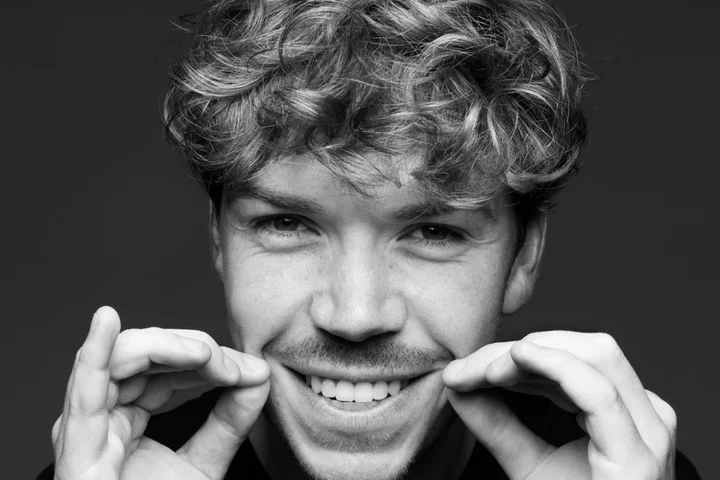
Will Poulter says acting offered ‘escape’ from mental health issues
Will Poulter has suggested his acting career meant he didn’t address his mental health “as early as I might have”. The 30-year-old British star has been acting since he was a child, first appearing in the 2007 film Son Of Rambow. “I think for me, performance offered me something of an escape,” Poulter told the PA news agency. “For a while, maybe I wasn’t addressing some of my mental health issues as early as I might have, because I was losing myself in my work a little bit, and that’s probably quite relatable to a lot of people, whether they’re actors or not. “So it’s been a kind of blessing and a curse in that respect, if I’m being completely honest, but I’m obviously very, very grateful to have found something that ultimately I’m very passionate about and I love doing, so it nets out as being a positive and I’m grateful for it.” Poulter, who has been diagnosed with generalised anxiety disorder, depression and OCD, has teamed up with Movember for its 20th anniversary to raise funds and awareness of testicular cancer, prostate cancer, mental health and suicide prevention. He said his experiences with mental health have “textured my experience in a number of different ways”, and highlighted the importance of opening up. “I’ve found, certainly, that having the opportunity to talk in a kind of no-holds-barred fashion, and not to feel the kind of brunt of the stigma, has been really beneficial,” the Maze Runner star said. “I think, to a large extent, a problem shared is a problem halved… By talking to people more openly about the subject of mental health, you quickly come into contact with the idea that it’s often people that you wouldn’t necessarily assume are suffering from something. “Everyone has a mental health to consider, everyone’s dealing with something to some extent.” There's still quite an asphyxiating stigma around mental health Will Poulter He said he’s been “liberated to talk about my mental health relatively freely”, but accepted that isn’t necessarily the case for everyone. “Certainly on a societal level, there’s still quite an asphyxiating stigma around mental health. I think what Movember have long done is helped deconstruct that stigma and create a more hospitable environment for people to be able to talk about mental health.” He suggested that mental health is “especially stigmatised” in the male community. According to the Office for National Statistics (ONS), around three-quarters (74%) of the suicides registered in England and Wales in 2021 were men. It’s the leading cause of death in men aged 20-34. Movember also said it’s believed one in five (20%) of men in the UK aged between 16-29 experienced moderate to severe depressive symptoms in 2023. The charity took on mental health and suicide prevention as a cause area in 2006, focusing on prevention, early intervention and health promotion focusing around men. Poulter, who is teaming up with Movember for the second year in a row, said he’s “very fortunate to have a lot of people in my life, both men and women, who contribute to that conversation [around mental health] very openly”, but accepted there’s still a way to go. “It often requires a lot of courage on behalf of the person who’s dealing with a mental health issue to speak up. What I think we have to work towards is a destigmatised society, so it isn’t such a courageous thing to do.” He continued: “When you break it down, ultimately we’re talking about an organ, or talking about taking care of your body. When you think about it like that, to think there’s so much stigmatisation around talking about taking care of the most vital organ in your body, it seems kind of bizarre – but that is the situation we find ourselves in.” Poulter said he always tries to “think about it in those terms”, and talk about it like that with “people in my own household and those nearest and dearest to me”. He added: “It’s always fascinated me that physical health, largely speaking, doesn’t have the same stigma surrounding it. People talk about physical health more freely than they do mental health.” Movember is an annual event where people grow moustaches during the month of November to raise awareness of a variety of men’s issues, and 2023 marks 20 years since the charity was founded in a pub in Melbourne, Australia, by two friends. Portrait photographer Rankin has teamed up with Movember to photograph people including Poulter, ex-Arsenal footballer Jermaine Pennant, TV presenters Laura Whitmore and Iain Stirling, and members of boyband Busted. Poulter is an ambassador of Movember, united to take on mental health, suicide, prostate and testicular cancers. See Movember.com. For mental health support, contact the Samaritans on 116 123, email them at jo@samaritans.org, or visit samaritans.org to find your nearest branch. Read More 5 of the hottest new perfume launches for autumn/winter Consistent lack of sleep may increase risk of future depressive symptoms – study World Osteoporosis Day: The risk factors and early warning signs everyone needs to know about How to support a child with a stammer From colourful gowns to drones, these wedding trends are set take over 2024 Call The Midwife ‘should come with a health warning’
2023-10-20 17:47
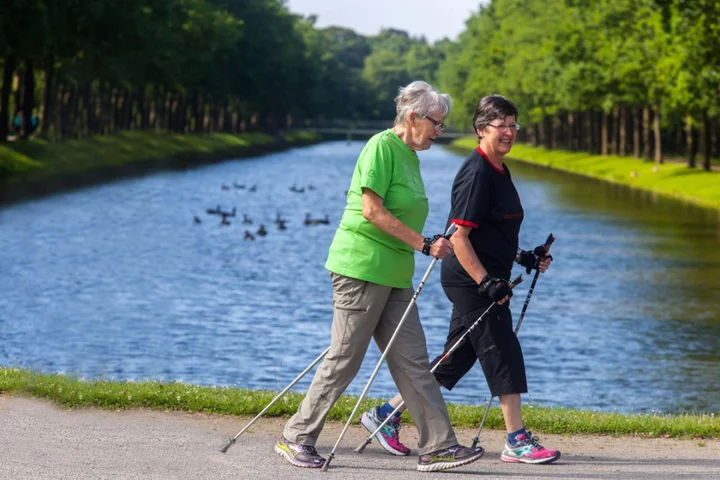
World Osteoporosis Day: The risk factors and early warning signs everyone needs to know about
October 20 marks World Osteoporosis Day – but despite being a relatively common condition, many people are unaware they’re at risk. According to Age UK, osteoporosis – which is associated with weakened bones and often referred to as a ‘silent disease’, as symptoms can creep up on people – affects approximately three million people in the UK. Yet, many only find out they have it when they break a bone. “[Osteoporosis] is a condition characterised by weakened bones, making them more prone to fractures,” explains Dr Zulqarnain Shah, a medical director at SSP Health. “It occurs when the body loses too much bone or makes too little bone, or both. Diagnosis of osteoporosis typically involves a combination of medical history, physical examination, and specialised tests, such as bone mineral density scans,” Shah adds. Could I be at risk of osteoporosis? According to Age UK, around half of women over 50, and around one in nine men in the same age group, will experience a fracture due to osteoporosis. However, several risk factors contribute to the development of the condition, meaning some people may be more likely to get it. “These include menopause, low calcium and vitamin D intake during younger years, family history, a sedentary lifestyle, smoking, excessive alcohol consumption, and certain medications,” explains Shah. “While it may not be possible to prevent all cases of osteoporosis, adopting a healthy lifestyle with regular weight-bearing exercise, a balanced diet rich in calcium and vitamin D, and avoiding smoking and excessive alcohol intake can help reduce the risk.” Being aware of osteoporosis can be particularly important if you have a family history. “A family history of osteoporosis or fragility fractures can indicate an increased risk,” explains Dr Elise Dallas, GP at The London General Practice. Other things that increase risk include having a history of “rheumatoid arthritis, low levels of oestrogen due to early menopause, anorexia nervosa or Turner’s syndrome, hyperthyroidism, parathyroid disease, Crohn’s and coeliac disease, and conditions that cause long periods of immobility”, adds Dallas. What are the symptoms of osteoporosis? When you have osteoporosis, you may suffer from “increased fracture risk, height loss, and chronic pain”, says Shah. “Fractures associated with osteoporosis are known as ‘fragility fractures’, which can occur with minimal impact. Fractures commonly occur in the spine, hip, and wrist, and can lead to significant pain, disability, and reduced quality of life,” he explains. Are there any early warning signs? Shah says: “Early signs of osteoporosis may not be apparent until a fracture occurs. However, a precursor condition called osteopenia may be detected through scans before the onset of full-blown osteoporosis.” Osteopenia is where the density of the bones decreases, but not thoroughly enough to be classed as osteoporosis. There are no real symptoms however, so it can only be detected with scans. The good news is, lifestyle measures and sometimes treatment can help prevent it getting worse. How is osteoporosis treated? Treatment for osteoporosis is mostly aimed at “strengthening bones and preventing fractures”, says Shah. “This typically involves a combination of lifestyle modifications, such as exercise and dietary changes, along with medication. “Medications may include calcium, vitamin D and bisphosphonates, hormone therapy for postmenopausal women, selective oestrogen receptor modulators (SERMs), and other options. “SERMS help manage the way oestrogen interacts with your body and has a similar impact on osteoporosis as hormone replacement therapy, to help mitigate the impacts of hormones on osteoporosis,” Shah explains. “Regular monitoring and adherence to treatment plans can help slow down or stop the progression of osteoporosis. A bone density scan – also known as a DEXA scan – can help monitor the progress of a condition and may be done at three to five-year intervals to assess progress. “Once a patient has been on bisphosphonates for five years, they may go on a ‘pill holiday’ for a couple of years, though the benefits of taking bisphosphonates continue long after the medication is stopped.” Getting support and advice to manage any pain and mobility challenges and reduce the risk of falls and injuries can also be very important for people living with osteoporosis, along with finding ways to stay active. If you are worried about your bones and osteoporosis risk you can reach out to charities like the Royal Osteoporosis Society and find out about your risk level. Read More How to support a child with a stammer From colourful gowns to drones, these wedding trends are set take over 2024 Call The Midwife ‘should come with a health warning’ Halloween: 10 wicked ways to kit out your haunted house Black magic: Go back to black this season with the catwalk-inspired trend How to prep your home for when the clocks go back
2023-10-20 15:25

How to support a child with a stammer
For people with a stammer, it can be hard to deal with, but it’s made worse by the fact that understanding of the condition amongst the general public is low. The speech problem usually starts in childhood, between the ages of around two and five years old, affecting around 8% of children and 2% of adults – that’s more than 1.3 million people in the UK. International Stammering Awareness Day (October 22) aims to destigmatise stammering and promote understanding and support for people who do have it, including advice for parents about how they can help affected children. “There’s a lot of stigma around stammering in society – even from an early age, children may be teased or bullied, and adults may tell them to speak properly,” says Catherine Woolley, children and families programme lead at STAMMA (the British Stammering Association). “Children who stammer sometimes feel embarrassed or worried about their speech and try to hide it. They might start to speak less or change words they want to say to ones which are easier to produce. “How you respond to your child can affect how they feel about their talking. It’s common for parents to worry about stammering, and if this is you, you can seek support to help you feel comfortable around your child’s stammering.” Woolley points out that, contrary to popular belief, stammering isn’t caused by anxiety or stress, and there’s no evidence that people who stammer are less intelligent than fluent speakers. “Research suggests stammering is neurological, which means there are subtle differences in the way the brains of people who stammer work,” she explains. “This means it belongs to the same group of neurodiverse conditions as ADHD, autism and dyslexia.” The condition is often hereditary, with about 60% of people who stammer having another family member who stammers, and while there’s no specific cure, Woolley says there are many different techniques and approaches that can increase people’s fluency in certain situations, although they may not work for everyone. “There isn’t one treatment which can miraculously make all people stop stammering,” she stresses. “Everyone’s stammer is unique, as is the way they want to manage their speech.” But there’s no doubt, she says, that parents can help their children deal with stammering, and make them feel more comfortable. 1. Value your child’s stammered voice “It’s simply the way they talk,” says Woolley. “What’s important is what they say and not the way they say it.” 2. Be patient Although it can obviously take more time for a child who stammers to say something, it’s important for parents and the rest of the family not to rush them. “Give them time to say what they want, and model this to their siblings and other family members,” she adds. 3. Don’t finish their words or sentences Woolley says that while it can be tempting to finish your child’s words or sentences for them, especially if you can see them struggling, it’s important to resist this urge to help. “It can be disempowering and embarrassing if you speak over them,” explains Woolley, “not to mention frustrating if your guess is wrong and they have to start all over again.” 4, Slow down yourself Rather than telling your child to speed up, slow down your own speech to reduce any time pressure they may feel. 5. Don’t show your own anxietyEven if you feel anxious when your child is stammering, try not to show it, advises Woolley, who suggests maintaining natural eye contact and remaining calm. “It can be uncomfortable listening to someone who stammers, but think how they feel. Try and maintain eye contact even if you feel awkward, as looking away can make them feel awkward too, or think you’ve lost interest in what they’re saying. Keep looking at them and give the occasional encouraging head nod to show you’re interested.” 6. Try not to be negative Woolley says it can be important to describe stammering using neutral language instead of negative references. So, for example, say, ‘He’s stammered more this week’, rather than, ‘His speech has been bad’. 7. Seek help Parents who are worried about their child’s talking or would like some help should contact their local NHS speech and language therapy department to talk through their concerns. In addition, STAMMA offers free Parent2Parent peer support groups run by parents of children who stammer, and workshops for such parents, plus a helpline (0808 802 0002) and a webchat service. Read More From colourful gowns to drones, these wedding trends are set take over 2024 Call The Midwife ‘should come with a health warning’ Halloween: 10 wicked ways to kit out your haunted house Black magic: Go back to black this season with the catwalk-inspired trend How to prep your home for when the clocks go back Menopause campaigner Mariella Frostrup: ‘I look forward to a future where women gradually stop feeling so ashamed’
2023-10-20 14:56
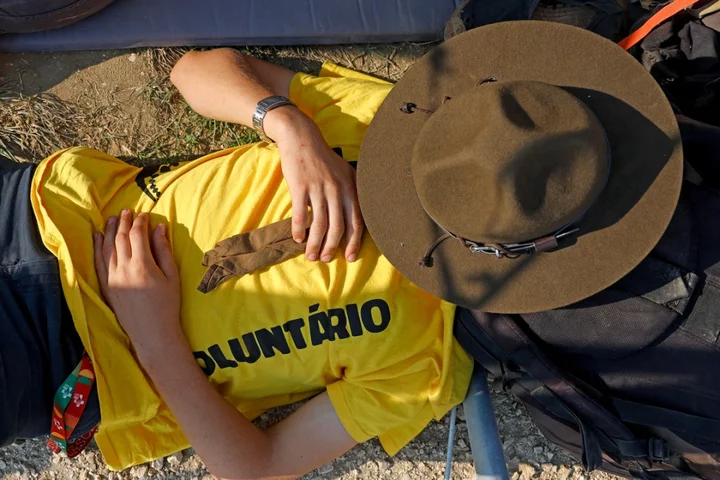
Hitting snooze button can actually benefit brain sometimes, study suggests
Hitting the snooze button on the alarm clock once in a while might actually support the brain’s process of waking from deep sleep, according to a new study. People sometimes want to go right back to sleep even after the alarm goes off in the morning, using the snooze button in clocks and cell phones. Decades of previous research suggested that hitting snooze can have negative effects, both on sleep and the brain’s ability to wake up, but until now there hasn’t been any direct evidence of this, say scientists. The new study, published in the Journal of Sleep Research, assessed how common snoozing is and what effects this behaviour has on sleep, sleepiness, mood, and the brain’s cognitive abilities. Researchers found that those who snooze on an average sleep slightly shorter and feel more drowsy in the morning compared to those who never snooze. But they also saw that there were no negative effects of snoozing on the release of the stress hormone cortisol, mood, or sleep quality throughout the night. In the study, 1732 individuals answered questions about their morning habits, including how often they hit the snooze button with many – especially young adults – reporting that they use the alarm feature regularly. The most common reason for snoozing, according to participants, is feeling too tired to get out of bed when the alarm goes off. In another small follow-up experiment, 31 regular snoozers spent two nights in a sleep lab in order to measure their sleep in more detail. On one of the mornings, they were allowed to snooze for 30 minutes, and on the other, they had to get up right when the alarm went off. While in the first case, participants’ sleep was disturbed during the half hour of snoozing, most of them still got more than 20 minutes of sleep – meaning that their total night’s sleep was not affected much. In the snooze condition, no one had to wake up suddenly from deep sleep, and the snoozers performed a bit better on cognitive tests right upon waking. There were also no clear effects of snoozing on mood, sleepiness, or the amount of cortisol in the saliva. The results hint that half an hour of snoozing may not have negative effects on night sleep and could have some positive effects like a decreased likelihood of waking from deep sleep. However, researchers caution that the second experiment was small and only included people who are regular snoozers who find it easy to go back to sleep after each alarm. They say snoozing is most likely not for everyone. Jennifer Kanaan from the University of Connecticut in the US, who is another sleep scientist unrelated to the study, said the latest findings should be interpreted with caution as it could send the wrong message to people. “If you’re coming in and out of sleep for 30 minutes, after the alarm goes off the first time, you’re costing yourself 30 minutes of uninterrupted, quality, restorative sleep,” Dr Kanaan said in a statement. Instead of trying to figure out how to manipulate our alarm clocks, she says people should make a consistent good night’s sleep a greater priority and be less reliant on snooze buttons. “Simply put, instead of hitting the snooze button they should get more sleep,” Dr Kanaan said. Read More Study reveals why millions of women wake up at 3.29am Consistent lack of sleep may increase risk of future depressive symptoms – study Breakthrough study allows scientists to communicate with people as they sleep How to support a child with a stammer ‘I lost nearly a stone on Ozempic, but now it’s run out what am I to do?’ Miriam Margolyes now has part of a cow’s heart as she opens up about health
2023-10-20 14:52
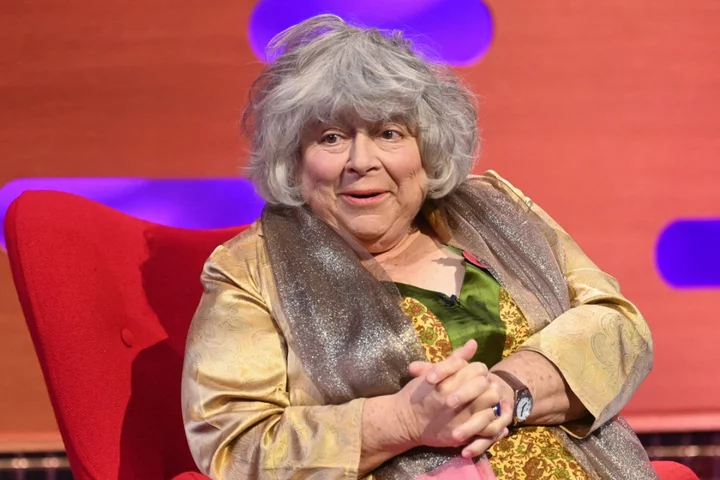
Miriam Margolyes now has part of a cow’s heart as she opens up about health after surgery
Miriam Margolyes has shared a health update after heart surgery, revealing that she now has part of a cow’s heart. Back in May, the Harry Potter actor underwent a minimally invasive procedure called a Transcatheter Aortic Valve Implantation (TAVI) to replace a narrow aortic valve after it fails to open properly. Appearing on the Table Manners podcast, Margolyes, 82, discussed the heart operation with hosts Jessie Ware and her mother, Lennie. “I’ve got a cow’s heart,” Margolyes revealed. “Well, not the whole heart. I’ve had an aortic valve replaced by a cow’s aortic valve.” Jessie asked if that was “common”, with Margolyes joking: “I think it’s rather refined, actually… I don’t know how common it is, I’d never heard of that operation. But it saves you from having open heart surgery, which would be infinitely more invasive.” Further discussing the surgery, Margolyes explained: “They made two little holes in your groin, one in each groin. and then they shoved this thing through. And I don’t know how they pull it up but they sort of pull it up with strings, into your heart. “And then when it comes to the point when it’s in your heart, they pull a little string and it goes pow! And lo and behold, your artery or your aortic valve is shoved unceremoniously to the side, and the cow’s aortic valve says, ‘Moo, I’m here.’ It’s rather amazing.” Margolyes also shared that she would “probably” use a wheelchair soon due to her bad back, but had “just sort of accepted” that it was going to be necessary. On her new fandom and being seen as a “national treasure”, thanks to her outspoken nature, she added: “It’s lovely to hear that you like me and you approve of me. But I truly am a little old lady. Trying to make a living. Trying to keep going.” Last month, the actor released her new memoir, titled Oh Miriam: Stories from an Extraordinary Life. In the book, which was full to the brim with revelations, Margolyes wrote that her current state of disability meant that she now is mostly unable to perform on the theatre. Describing herself as “semi-crippled”, she wrote that “usually that means you have to stop”. “I don’t think I can do theatre again unless I’m playing a character similarly disabled,” she said. “I know Maggie [Smith] and Eileen [Atkins] and Judi [Dench] and Vanessa [Redgrave] still tread the boards, and they’re older than me – but they’re fitter, b***** it, and good luck to them!” Read More Tilda Swinton, Steve Coogan and Miriam Margolyes among 2,000 artists calling for Gaza ceasefire 11 biggest revelations from Miriam Margolyes’ hilarious new memoir Miriam Margolyes says Steve Martin was ‘horrid’ on film set: ‘Perhaps he was method acting’ Call The Midwife ‘should come with a health warning’ My kids don’t have sushi in their packed lunches – does it make me a bad mum? Adele reveals she’s three months sober after being ‘borderline alcoholic’ in her 20s
2023-10-19 17:57
